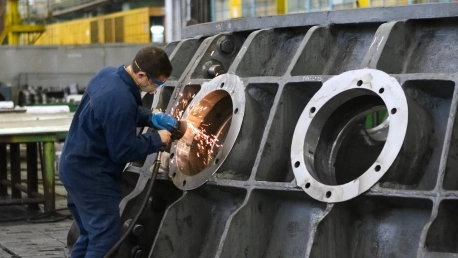The U.S. manufacturing sector has faced continuous challenges with a noticeable decline in market share for domestically produced goods, falling to 66% in 2022, and stagnant productivity levels since 2011. The era calls for effective strategies to rejuvenate this vital industry. One such approach, emphasized by Tyson Browning in his article, is the adoption and modernization of lean manufacturing practices. Lean manufacturing has the potential to transform the U.S. manufacturing landscape through enhanced efficiency and employee engagement, coupled with data-driven decision-making processes.
The Case for Lean Manufacturing
Lean manufacturing, with its principle of eliminating waste and optimizing processes, has long been recognized for its capacity to enhance productivity and operational efficiency. Despite this, recent research from Industry Reimagined 2030 reveals a worrying trend: a minimal fraction of U.S. companies deploy these practices efficiently. This gap in implementation is alarming, especially with the proven benefits of lean manufacturing, including reduced lead times, lower operating costs, and improved product quality. However, to meet today’s challenges like supply chain disruptions and the integration of advanced production technologies, the traditional lean methodologies must evolve to remain relevant.The modern era demands a fresh perspective on lean practices, integrating technology such as automation, artificial intelligence, and advanced data analytics. These tools can provide real-time insights, enabling companies to swiftly adapt to fluctuations in supply and demand. Unfortunately, many American manufacturers have been slow to adopt these innovations. A prevailing reluctance is partly due to a lack of deep operational expertise among executives, many of whom undervalue the intricacies of operations management. This mindset needs a fundamental shift, recognizing that a robust understanding of lean principles can significantly impact a company’s bottom line.
Addressing the Expertise Gap
A central issue hindering the effective implementation of lean manufacturing in the U.S. is the gradual decline in operations management expertise. Over recent decades, fewer universities have offered specialized courses in this field, contributing to a dearth of foundational knowledge among business leaders. This educational gap poses a significant challenge, as a profound understanding of operations is crucial for the successful application of lean principles. Executives and managers often view operations as minor logistical details rather than the strategic framework necessary for competitiveness and resilience.Tyson Browning’s commentary highlights the importance of education in turning this trend around. By re-emphasizing operations management in academic curriculums and corporate training programs, the next generation of leaders can be better equipped to apply lean methodologies effectively. The need for continuous learning and development in this area cannot be overstated. Companies should incentivize their staff to pursue advanced training in lean practices, creating a culture of perpetual improvement and operational excellence. This educational focus not only prepares individuals to handle current operational challenges but also empowers them to innovate and adapt to future disruptions.
The Path Forward for U.S. Manufacturing
The U.S. manufacturing sector has been grappling with numerous challenges, notably, a noticeable decline in the market share of domestically produced goods, dropping to 66% in 2022. Equally concerning is the stagnation in productivity levels seen since 2011. This situation calls for effective and innovative strategies to rejuvenate this crucial industry. One promising approach, highlighted by Tyson Browning in his article, is the adoption and modernization of lean manufacturing practices. Lean manufacturing, originally developed by Toyota, focuses on minimizing waste without sacrificing productivity. The adoption of these practices could potentially revolutionize the U.S. manufacturing landscape, enhancing efficiency, boosting employee engagement, and fostering more informed, data-driven decision-making processes. Additionally, the integration of advanced technologies such as automation and AI can further support lean principles by streamlining operations and providing insights for continuous improvement. This multifaceted strategy offers a viable pathway for revitalizing American manufacturing.









